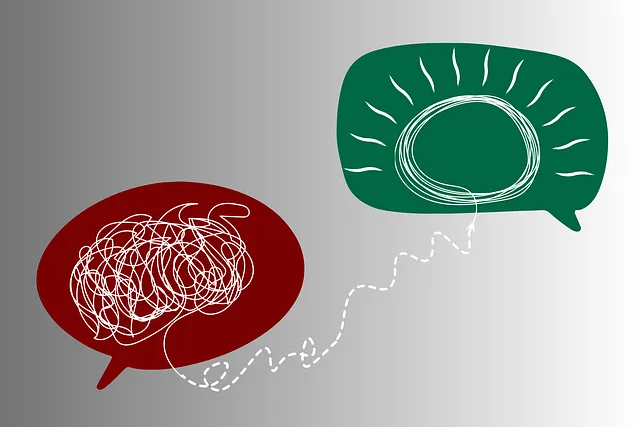Group facilitation at Lakewood Kaiser Permanente enhances mental wellness through supportive spaces, peer learning, and community outreach. Facilitators, equipped with communication skills, guide participants in open dialogue, coping skill strengthening, and fostering peer support. Practices like Mental Wellness Journaling Exercises and risk management planning promote emotional processing and progress tracking. Effective facilitation involves icebreakers, interactive techniques, and emotional well-being promotion, leading to empowered participation and inclusive spaces. Success is measured through attendance, engagement, and feedback surveys, ensuring adaptable programs addressing evolving community needs, as seen with the Lakewood Kaiser Permanente mental health appointment number resources.
Mental wellness group facilitation plays a crucial role in enhancing therapeutic outcomes at institutions like Lakewood Kaiser Permanente. This article explores effective techniques for facilitating mental health groups, from understanding the core principles to cultivating safe spaces. We delve into essential skills required of facilitators and strategies for engaging participants actively. Additionally, we discuss measuring success and evaluating group effectiveness, offering valuable insights for optimal mental health care through group settings.
- Understanding Group Facilitation in Mental Health Care
- The Role of a Facilitator: Skills and Qualities Required
- Creating a Safe and Supportive Group Environment
- Engaging Participants and Encouraging Active Participation
- Measuring Success and Evaluating Group Effectiveness
Understanding Group Facilitation in Mental Health Care

Group facilitation plays a pivotal role in enhancing mental wellness within healthcare settings, particularly at institutions like Lakewood Kaiser Permanente. It goes beyond individual therapy, fostering a supportive environment where participants can connect, share experiences, and learn from one another. This collaborative approach, often employed during mental health appointments (e.g., those scheduled via the Lakewood Kaiser Permanente mental health appointment number), aims to strengthen coping skills and promote peer support.
Effective group facilitation techniques, such as encouraging open dialogue through safe and structured discussions, can facilitate the development of essential coping skills. Additionally, community outreach program implementation within these groups allows for the exchange of diverse perspectives, fostering a sense of belonging and empowerment. Even simple practices like Mental Wellness Journaling Exercises can be guided during sessions to help individuals process their emotions and track their progress, thereby enhancing overall mental wellness.
The Role of a Facilitator: Skills and Qualities Required

The role of a mental wellness group facilitator is multifaceted and demanding, requiring a unique blend of skills and qualities to create a safe, supportive, and engaging environment for participants. Facilitators act as guides, helping individuals navigate their emotional journeys and fostering meaningful connections within the group setting. They must possess excellent communication skills, enabling them to articulate complex concepts clearly and adapt language to suit diverse audiences. Active listening is paramount, allowing facilitators to understand individual needs, offer empathy, and provide tailored support.
Beyond effective communication, successful facilitators exhibit strong interpersonal abilities. They create a sense of belonging and encourage open dialogue while maintaining boundaries. Adaptability is crucial, as each group dynamic is distinct, demanding facilitators to be flexible in their approach and content delivery. Furthermore, a thorough understanding of mental health principles, including risk assessment (as per Lakewood Kaiser Permanente’s standards), inner strength development, and positive thinking strategies, equips facilitators to address emerging issues and promote overall wellness.
Creating a Safe and Supportive Group Environment

Creating a Safe Space for Connection is paramount when facilitating mental wellness groups. The environment plays a crucial role in fostering open dialogue and encouraging vulnerability among members. At Lakewood Kaiser Permanente, mental health professionals often emphasize the importance of a supportive atmosphere during group appointments, which can be achieved through various techniques. One approach is to establish clear ground rules from the beginning, ensuring every participant feels heard and respected. This includes promoting active listening, confidentiality, and creating a non-judgmental space where everyone feels safe to express their thoughts and feelings.
Additionally, incorporating community outreach program implementation strategies can enhance group dynamics. By inviting guest speakers or organizing activities that connect members with the wider community, facilitators encourage a sense of belonging and support beyond the group setting. This holistic approach, combined with effective risk management planning for mental health professionals, ensures that participants not only feel supported but also equipped to navigate their mental wellness journeys with newfound resilience and positive thinking.
Engaging Participants and Encouraging Active Participation

Engaging participants and fostering active participation are key aspects of effective mental wellness group facilitation. Starting with an icebreaker or a brief introduction activity helps to create a safe and welcoming environment, encouraging members to connect with each other and share their experiences. This initial step is crucial in building trust and fostering a sense of community within the group. By using interactive techniques like pair sharing, small group discussions, and role-playing exercises, facilitators can keep the energy high and promote active involvement.
Encouraging open dialogue and diverse perspectives ensures that everyone feels valued and heard. Incorporating emotional well-being promotion techniques, such as mindfulness exercises or positive affirmations, can help participants manage stress and cultivate a sense of calm. These activities not only enhance overall mental wellness but also create opportunities for members to share their personal strategies and insights, enriching the learning experience for all. Effective facilitation involves creating an inclusive space where individuals feel empowered to participate, contributing to the success of Stress Management Workshops organized by Lakewood Kaiser Permanente, as exemplified by their commitment to supporting mental health through various initiatives.
Measuring Success and Evaluating Group Effectiveness

Measuring success and evaluating group effectiveness are crucial aspects of facilitating mental wellness groups. One way to gauge progress is by tracking participant attendance and engagement levels throughout the sessions. Consistent participation indicates a sense of comfort and community within the group, fostering open discussions and enhancing collective healing. Additionally, regular feedback forms or post-session surveys can provide valuable insights into the group’s impact. Members may share personal reflections, highlighting specific techniques that resonated with them, such as mindfulness practices for anxiety relief or trauma support services.
Evaluating group dynamics and outcomes should also incorporate qualitative data, like observer notes from facilitators, which capture subtle changes in participants’ behaviors and interactions. By combining quantitative and qualitative methods, facilitators can assess the overall effectiveness of the group. For instance, a decrease in burnout prevention topics over time might suggest that members are developing healthier coping mechanisms. This feedback loop allows for continuous improvement, ensuring the group remains adaptable and responsive to its members’ evolving needs, as evidenced by the Lakewood Kaiser Permanente mental health appointment number resources readily available to support community well-being.
Group facilitation techniques play a vital role in enhancing mental wellness, as evidenced by successful models like those employed by Lakewood Kaiser Permanente. By fostering safe and supportive environments, facilitators equipped with the right skills can encourage active participation, leading to meaningful connections and improved outcomes for participants. Understanding these techniques is crucial for navigating the landscape of mental health care, ensuring that each individual receives the support they need in a group setting. Remember that, by integrating these practices, we can revolutionize mental health appointments, such as those offered by Lakewood Kaiser Permanente, making them more engaging and effective for all involved.





